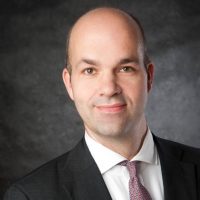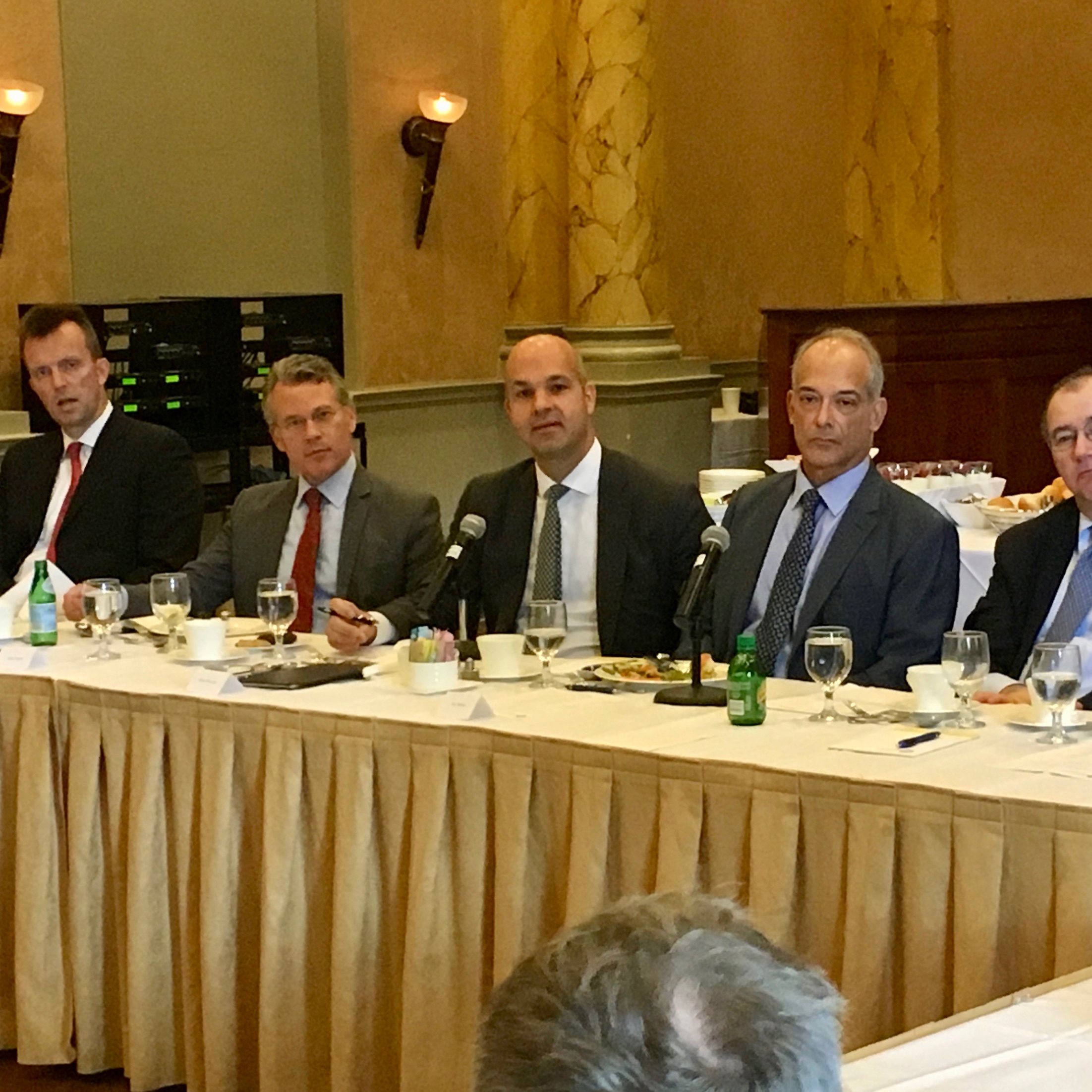Episode 11: Inequality and Social Division: An Economic Perspective

Jeff Rathke
President of AGI
Jeffrey Rathke is the President of the American Institute for Contemporary German Studies at the Johns Hopkins University in Washington, DC.
Prior to joining AICGS, Jeff was a senior fellow and deputy director of the Europe Program at CSIS, where his work focused on transatlantic relations and U.S. security and defense policy. Jeff joined CSIS in 2015 from the State Department, after a 24-year career as a Foreign Service Officer, dedicated primarily to U.S. relations with Europe. He was director of the State Department Press Office from 2014 to 2015, briefing the State Department press corps and managing the Department's engagement with U.S. print and electronic media. Jeff led the political section of the U.S. Embassy in Kuala Lumpur from 2011 to 2014. Prior to that, he was deputy chief of staff to the NATO Secretary General in Brussels. He also served in Berlin as minister-counselor for political affairs (2006–2009), his second tour of duty in Germany. His Washington assignments have included deputy director of the Office of European Security and Political Affairs and duty officer in the White House Situation Room and State Department Operations Center.
Mr. Rathke was a Weinberg Fellow at Princeton University (2003–2004), winning the Master’s in Public Policy Prize. He also served at U.S. Embassies in Dublin, Moscow, and Riga, which he helped open after the collapse of the Soviet Union. Mr. Rathke has been awarded national honors by Estonia, Latvia, and Lithuania, as well as several State Department awards. He holds an M.P.P. degree from Princeton University and B.A. and B.S. degrees from Cornell University. He speaks German, Russian, and Latvian.
__

Marcel Fratzscher
DIW Berlin
Marcel Fratzscher is President of DIW Berlin (German Institute of Economic Research) and Professor of
Macroeconomics and Finance at Humboldt-University Berlin.

Peter S. Rashish
Vice President; Director, Geoeconomics Program
Peter S. Rashish, who counts over 30 years of experience counseling corporations, think tanks, foundations, and international organizations on transatlantic trade and economic strategy, is Vice President and Director of the Geoeconomics Program at AICGS. He also writes The Wider Atlantic blog.
Mr. Rashish has served as Vice President for Europe and Eurasia at the U.S. Chamber of Commerce, where he spearheaded the Chamber’s advocacy ahead of the launch of the Transatlantic Trade and Investment Partnership. Previously, Mr. Rashish was a Senior Advisor for Europe at McLarty Associates, Executive Vice President of the European Institute, and a staff member and consultant at the International Energy Agency, the World Bank, UNCTAD, the Atlantic Council, the Bertelsmann Foundation, and the German Marshall Fund.
Mr. Rashish has testified before the House Financial Services Subcommittee on International Monetary Policy and Trade and the House Foreign Affairs Subcommittee on Europe and Eurasia and has advised three U.S. presidential campaigns. He has been a featured speaker at the Munich Security Conference, the Aspen Ideas Festival, and the Salzburg Global Seminar and is a member of the Board of Directors of the Jean Monnet Institute in Paris and a Senior Advisor to the European Policy Centre in Brussels. His commentaries have been published in The New York Times, the Financial Times, The Wall Street Journal, Foreign Policy, and The National Interest, and he has appeared on PBS, CNBC, CNN, NPR, and the BBC.
He earned a BA from Harvard College and an MPhil in international relations from Oxford University. He speaks French, German, Italian, and Spanish.
 Globalization and technological change have reshaped the world economy and have been vital sources of economic growth and prosperity in the United States and Germany for a decade. Yet polarization and political discontent persist despite rising incomes and low unemployment. Both countries have this in common despite different economic models.
Globalization and technological change have reshaped the world economy and have been vital sources of economic growth and prosperity in the United States and Germany for a decade. Yet polarization and political discontent persist despite rising incomes and low unemployment. Both countries have this in common despite different economic models.
There has to be more to the story. What are the insights we can gain from economic research into political sentiments and voter behavior? A key factor is inequality. AGI will be working on this issue intensively in the coming months and years in a new project, Social Divisions and Questions of Identity in Germany and the United States: Consequences for Politics and Society. An Exchange Outside of the Metropolitan Areas.
There is also the issue of trade. It’s the engine of the German economy, but the Trump administration has taken aim at the international trading system. Add to that the question of how the United States and Europe should seek to address challenges from China—do we have a common agenda, or will this drive the transatlantic partnership asunder?
When you look at these questions closely, there are clear similarities, not only differences, which point toward the importance of common solutions to the problems we face.
On this episode of The Zeitgeist, Jeff Rathke and Peter Rashish speak with Professor Marcel Fratzscher, a prominent German economist and President of DIW Berlin, one of that country’s leading economic research institutes, about the broader societal challenges posed by elements of globalization. He is also a Professor of Macroeconomics and Finance at Humboldt University Berlin.
Episode 6: Competing Visions for a New Era of Globalization
Host
Jeff Rathke, President, AGI
Guests
Marcel Fratzscher, President, DIW Berlin
Peter Rashish, Senior Fellow and Director of the Geoeconomics Program, AGI
Prof. Fratzscher also spoke at AGI about the economic challenges facing the United States and Germany as part of our Geoeconomics Speaker Series, kindly supported by Allianz.







